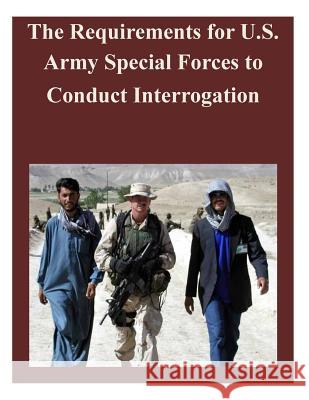The Requirements for U.S. Army Special Forces to Conduct Interrogation » książka
The Requirements for U.S. Army Special Forces to Conduct Interrogation
ISBN-13: 9781500731359 / Angielski / Miękka / 2014 / 96 str.
Waterboarding, rendition, torture: each of these terms provides deeply negative examples of the mishandling of detainees by various entities of the United States government during the prosecution of the wars in Afghanistan and Iraq. In order to rectify these failures of the various systems within the U.S. military's detention framework, the Department of Defense (DoD) developed and issued Field Manual 2-22.3 Human Intelligence Collector Operations. This new doctrine has created restrictions that add unnecessary hours to the process of exploiting detainees through tactical interrogation. Due to the autonomous nature of their missions, the significance for U.S. Army Special Forces is immense. Tactical interrogation is a legal, viable, and necessary method of information gathering on the battlefield. FM 2-22.3 has taken away USSF's capability to exploit an immense pool of intelligence that could be critical in the current conflicts. This work explores the limitations imposed by current doctrine and discusses changes necessary to provide the skills, training, and legal authorities that will allow Special Forces to use every appropriate resource to be successful on the modern battlefield. Recommendations are provided regarding training and doctrine to provide the proper authorities along with appropriate checks and balances.











